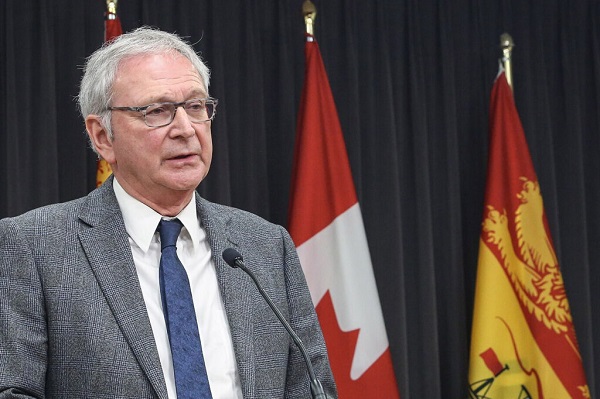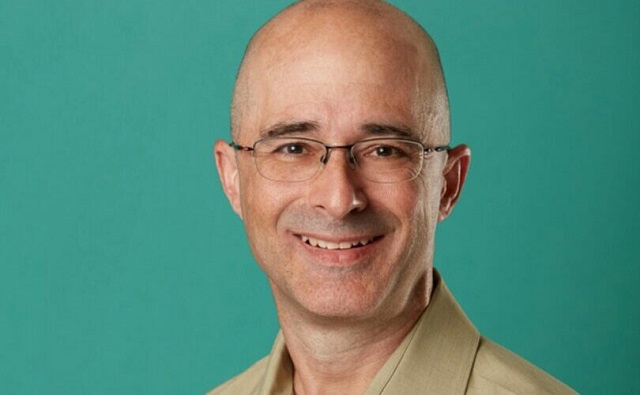Alberta
Health Care Overhaul: AHS to be laser focused on Acute Care and Continuing Care outcomes

Refocusing on patient-centred care
A refocused health care system will improve health outcomes for Albertans and empower health care workers to deliver quality care across the province.
Alberta’s front-line health workers provide exceptional care to patients and families, and Alberta’s government is committed to supporting their work by providing a high-functioning health care system. Alberta’s government has been working to address wait times and health care service disruptions, but challenges still exist in the system, including accessing community care like family doctors and local health services. The current health care system’s structure limits the government’s ability to provide system-wide oversight, set system priorities, and to require accountability for those priorities on behalf of Albertans.
To overcome current challenges and deliver the right care for Albertans at the right time, Alberta is refocusing the health care system. These changes will focus on the priority sectors of primary care, acute care, continuing care and mental health and addiction to ensure Albertans receive the best care within a single, fully integrated, high-functioning system.
These changes will improve front-line service delivery, and front-line jobs will be protected during this transition. Albertans will continue to access health care services where they regularly receive their care during the system’s transition period and beyond.
“Albertans deserve access to the health care they need, when and where they need it. Health care workers move mountains for their patients every day. For too many years, Alberta’s health care system has been too complex and uncoordinated, leading to unacceptable wait times and poorer health outcomes for Albertans. It’s time to change that. It’s time to put Albertans first in every health care decision and give our front-line experts the right space to properly care for Albertans. This is why we are refocusing the health system to provide better care for generations of Albertans to come.”
“We are at a critical juncture when it comes to health care in Alberta. We need to refocus how the system is structured and create a path forward that will get us the outcomes Albertans deserve. This work will take time and it will not be easy. We will lean on the world-class talent and expertise that exists in our health care system every step of the way. I ask health care workers to join us on this important journey so they can work in a better system – for them and for their patients.”
“Minister LaGrange has acknowledged that our health care system needs urgent reform. This work will only succeed with the involvement and leadership of physicians. The AMA looks forward to meaningful consultation and collaboration as these reforms are further elaborated.”
Alberta
Parent and gender dysphoria groups granted intervenor status in New Brunswick school policy case

News release from the Justice Centre for Constitutional Freedoms
The Justice Centre for Constitutional Freedoms is pleased to announce that two groups, Gender Dysphoria Alliance and Our Duty Canada, have been jointly granted intervenor status in a constitutional challenge to a New Brunswick education policy. The policy requires that parents be notified when their child intends to undergo a gender transition by using a different name and pronouns at school.
On August 17, 2020, the New Brunswick government created Policy 713, which prohibited teachers from informing parents that their child had adopted a new name or pronouns at school (unless the child consented to such disclosure).
On June 8, 2023, the government changed the policy to require that parents of students under 16 years of age be notified by the school before the formal use of a different name or pronoun. “Formal” refers to the use of names and pronouns in the classroom and in school records.
The change to Policy 713 brought a firestorm of criticism and media coverage because it was the first of its kind in Canada to support parental rights on this issue. New Brunswick Premier Blaine Higgs stated that he believes he has the support of parents in the province on this issue.
The Canadian Civil Liberties Association (CCLA) brought a constitutional challenge against the Province of New Brunswick as represented by the Minister of Education and Early Childhood Development, on September 6, 2023. The CCLA argues that Policy 713 infringes the students’ rights to freedom of expression, to equality, and to life, liberty and security of the person.
“The Canadian Civil Liberties Association has filed a court challenge against the right of parents to be fully informed about what is happening with their own children at school,” stated John Carpay, President of the Justice Centre.
“The Supreme Court of Canada explained in B.(R.) v. Children’s Aid Society of Metropolitan Toronto that the parental interest in bringing up, nurturing and caring for a child, including medical care and moral upbringing, is an individual interest of fundamental importance to our society,” continued John Carpay.
On May 2, 2024, Justice Richard Petrie of the New Brunswick Court of King’s Bench granted intervener status to two groups: Gender Dysphoria Alliance is comprised of transsexual adults who seek to promote an evidence-based approach to gender dysphoria. Our Duty Canada is a peer support network for parents of children struggling with gender dysphoria and transgender ideation. As intervenors, they now have the right to present evidence to the court. The Justice Centre is providing for the legal representation of both groups, which seek to uphold the constitutionality of the amended Policy 713.
Prior to granting intervenor status, on March 5, 2024, Justice Petrie ordered that any proposed intervenors file the evidence they intend to present.
Gender Dysphoria Alliance and Our Duty Canada submitted the following testimonies as evidence:
- The written testimony of a New Brunswick mother whose child underwent a social transition in school, about which she was not informed;
- The written testimony of a young woman from Alberta who began to adopt new pronouns at school without her parents’ knowledge; she ultimately reversed course (detransitioned) after her parents became aware of her situation and were able to assist her;
- The written testimony of the young woman’s father.
Karin Litzcke of Our Duty Canada says, “[Our] members are pleased to have an opportunity to contribute to the development of jurisprudence in this area. What has happened to us could happen to any parents under policies that promote secrecy from families. We are grateful to the Justice Centre for its assistance in advocating for the interests of children and parents in court.”
Speaking on behalf of Gender Dysphoria Alliance, Aaron Kimberly says, “The Gender Dysphoria Alliance is pleased with the decision to grant us intervention status in this case. We believe New Brunswick’s policy is an important safeguarding measure for children experiencing gender incongruence, since we know that most kids with this experience turn out to be gay or lesbian, not trans. Prematurely labelling kids “trans” and socially transitioning them is a psychosocial intervention that risks putting pre-gay kids onto an unnecessary medical pathway.”
Hatim Kheir, lawyer for both groups, says, “The Supreme Court has affirmed that parents in Canada have the right to guide the moral upbringing of their children. This case provides an opportunity for the Court to apply those rights to issues surrounding gender which are becoming increasingly relevant in our society.”
Alberta
Canadian Christian chiropractor fights ‘illegal’ $65,000 fine for refusing to wear mask

From LifeSiteNews
Dr. Curtis Wall went against the College of Chiropractors of Alberta’s COVID mask mandate in 2020 and the organization has been pursuing disciplinary action ever since.
The legal team for Dr. Curtis Wall, a Canadian chiropractor who was recently fined $65,000 by his medical college for not wearing a mask in 2020 despite the fact public health orders last year were nullified by a court, has vowed to fight the “illegal” fine, saying that Wall was targeted because he is a “Christian man of integrity and principle.”
“Dr. Wall should not pay any fines or costs when the public health orders he was charged with not following have been declared void by the courts,” said Wall’s legal team, Liberty Coalition Canada (LCC), in a press release.
“He is a Christian man of integrity and principle — attributes that make him a target for government overreach in the era of COVID.”
Wall was practicing in Calgary in 2020 when the COVID crisis was gearing up, went against Alberta’s public health orders and chose not to wear a mask during patient visits. Many of his patients also decided to not wear masks during their visits, which quickly drew the ire of College of Chiropractors of Alberta, which had mandated that all chiropractors wear masks.
Wall, who has been seeing patients for the last 25 years with a pristine record, was then targeted by the College, which tried to strip him of his license to practice. The College was unable to strip Wall of his license and he continued to practice, sans mask in 2021 and 2022.
In 2021, the College had brought against Wall, as per the LCC, “a long list of charges of unprofessional conduct against Dr. Wall, most of which related to Dr. Wall not wearing a mask while treating patients and permitting his patients to not wear a mask.”
Wall was then brought before a disciplinary hearing Tribunal to mediate his case, which went well into 2022, and had placed a publication ban on all “identities of all witnesses,” including Wall’s.
James Kitchen, Wall’s lawyer from the LCC, was successful in getting the publication ban lifted, as the LCC noted due to the College “wishing to avoid likely defeat before the courts” regarding keeping the ban in place.
Fined chiropractor says college did not recognize his ‘Christian convictions’
In 2023, the Tribunal ruled against Wall entirely and in favor of the College.
The Tribunal’s decision noted the LCC is “riddled with errors of fact and law and is so poorly decided it is an embarrassment to the chiropractic profession.”
Wall spoke with LifeSiteNews and observed that while in his point of view he does not feel his fines and costs imposed on him by the college “are a direct result of my Christian faith,” he did note that the tribunal did “not recognize my honest Christian convictions as a valid reason for my not wearing a mask.”
“They put placed no merit in the argument that as a Christian I believe I am created in the image of God,” Wall said.
“My face is an expression of Him. Having man arbitrarily mandate that I cover my face is an affront to that expression and signifies that I am living in the fear of man, not by faith. So, in all, I don’t feel directly persecuted as a Christian, but certainly indirectly.”
Wall told LifeSiteNews that in his opinion the college could have “handled this issue much differently.”
“There must always be room for exceptions to a rule. I did present a doctor’s note to verify my inability to wear a mask. They did not place any weight on that note. They blamed me for ‘self-diagnosing’ my problem,” Wall said.
“Number one, I’m a doctor. I think eight years of schooling has given me some wisdom to diagnose my own signs and symptoms. Number two, if someone eats a peanut and their throat swells shut, can they not diagnose themselves and stay away from nuts? It’s not a problem to self-diagnose.”
Wall said that despite his legal team presenting four expert witnesses to demonstrate “the obvious inadequacy and lack of efficacy in mask-wearing, not to mention the harms as well,” the college “did not cite the record once in their verdict.”
He noted that “common sense, science and past and present studies overwhelmingly demonstrate” the lack of efficacy regarding mask-wearing.
The LCC noted that although both Kitchen and Wall hoped for an “unbiased decision from the tribunal,” they knew it was more “likely the tribunal members would lack the courage to oppose the government’s COVID narrative by accepting the scientific evidence masks are utterly ineffective at preventing the transmission of COVID and harmful to wearers.”
“Nonetheless, it is shocking the lengths the tribunal went to dismiss the evidence of Dr. Wall, three of his patients, and his four expert witnesses while blithely accepting all the evidence of the College.”
Wall’s charges laid despite a recent court ruling nullifying all Alberta COVID health orders
According to LCC, the charges brought against Wall show that the College of Chiropractors of Alberta has “ignored the law” relating to non-criminal COVID-era charges handed out in the province.
As reported by LifeSiteNews before, last year a judge from Alberta ruled that politicians violated the province’s health act by making decisions regarding COVID mandates without authorization. This ruling came from the Alberta’s Court of Kings Bench’s Ingram v. Alberta decision, which put into doubt all cases involving those facing non-criminal COVID-related charges in the province. In effect, the ruling struck down and nullified all health orders issued by Dr. Deena Hinshaw, Alberta’s former chief medical officer of health.
As a result, multiple people facing charges, such as Dr. Michal Princ, pizzeria owner Jesse Johnson, café owner Chris Scott, and Alberta pastors James Coates, Tim Stephens, and Artur Pawlowski who were jailed for keeping churches open under then-Premier Jason Kenney, have had COVID charges against them dropped due to the court ruling.
The Alberta’s Court of Kings Bench’s Ingram v. Alberta decision put into doubt all cases involving those facing non-criminal COVID-related charges in the province.
As a result of the court ruling, Alberta Crown Prosecutions Service (ACPS) said Albertans facing COVID-related charges will likely not be convicted but instead have their charges stayed.
However, last year, the College, and of important note after the Ingram ruling, ordered Wall to pay $65,000 in fines and costs “under threat of immediately losing his license to practice if he does not pay,” the LCC said.
Chiropractor’s lawyer to fight fine tooth and nail
According to the LCC, the College’s new complaints director said she will enforce the tribunal’s court-defying order and mandate Wall pay the $65,000.
Because of this, Kitchen submitted an application to the College “to prevent this injustice” against Wall, the LCC noted.
“The Application will be heard on June 21. It will be heard virtually and is open to public, although the College has erected a number of barriers to people attending its hearings. For one, people must register with the hearings director and must do so many days in advance,” he told LifeSiteNews.
“The Tribunal elected to ignore the Ingram decision despite issuing its decision over two weeks after Ingram was released by the Court.”
Kitchen noted that the Tribunal had a lawyer advising it who was being paid some $700 an hour. He told LifeSiteNews that “Tribunals can do whatever they want and often do.”
“Only if the affected person takes further legal action can they hold the Tribunals accountable. And even then, that’s very difficult because the first appeals are to the councils of the Colleges, which almost always rubber stamp whatever the Tribunals decide. Real accountability isn’t had until the impugned professional is able to reach the Court of Appeal, which of course takes years and an enormous amount of funding for lawyer fees,” Kitchen said.
Kitchen is working Wall’s case at discounted rates and noted that high legal costs in such cases dealing with tribunals, who can drag things on for years, to him appear to be a tactic the Colleges count on for “avoiding accountability.”
The LCC estimates the College, which is funded through payments from all chiropractors, paid some $600,000 in legal fees to fight Wall.
“LCC asks supporters to donate toward Dr. Wall’s case so he and Mr. Kitchen can hold the College of Chiropractors of Alberta accountable and bring an end to the unjust persecution of Dr. Curtis Wall. Liberty Coalition Canada is assisting Dr. Wall with his legal expenses through the Legal Defense Fund.”
Kenney quit after losing the confidence of his United Conservative Party (UCP) members for backtracking on his promise to not impose a COVID vaccine passport. Under Kenney, thousands of businesses, notably restaurants and small shops, were negatively impacted by severe COVID restrictions, mostly in 2020-21, that forced them to close their doors for a time. Many never reopened. At the same time, as in the rest of Canada, big box stores were allowed to operate unimpeded.
Under Kenney, thousands of nurses, doctors, healthcare and government workers lost their jobs for choosing to not get the jabs, leading Premier Danielle Smith to say – only minutes after being sworn in – that over the past year the “unvaccinated” were the “most discriminated against” people in her lifetime.
Recently, LifeSiteNews reported on how Alberta-based Rath & Company is in the process of putting together a class-action lawsuit against the Alberta government on behalf of many business owners in the province who faced massive losses or permanent closures from what it says were “illegal” COVID public health orders enacted by provincial officials.
-

 Automotive1 day ago
Automotive1 day agoNew Analysis Shows Just How Bad Electric Trucks Are For Business
-

 Education2 days ago
Education2 days agoSchools shouldn’t sacrifice student performance to vague notions of ‘equity’
-

 Opinion2 days ago
Opinion2 days agoBoy Scouts of America changes name to ‘Scouting America’ to be ‘more inclusive’
-

 Education1 day ago
Education1 day agoRDCRS celebrates Gillian Hallam as 2024 CCSSA Excellence in Catholic Education Award recipient
-

 International1 day ago
International1 day agoWhy Biden’s Gaza refugee plan is a hard hell no
-

 Alberta Sports Hall of Fame and Museum1 day ago
Alberta Sports Hall of Fame and Museum1 day agoTHE HALFTIME REPORT News from the Alberta Sports Hall of Fame
-

 COVID-191 day ago
COVID-191 day agoQuebec microbiology professor fired for his public opposition to COVID shots
-

 City of Red Deer1 day ago
City of Red Deer1 day agoCity holding Garage Sale to clear Kinex Arena ahead of demolition






